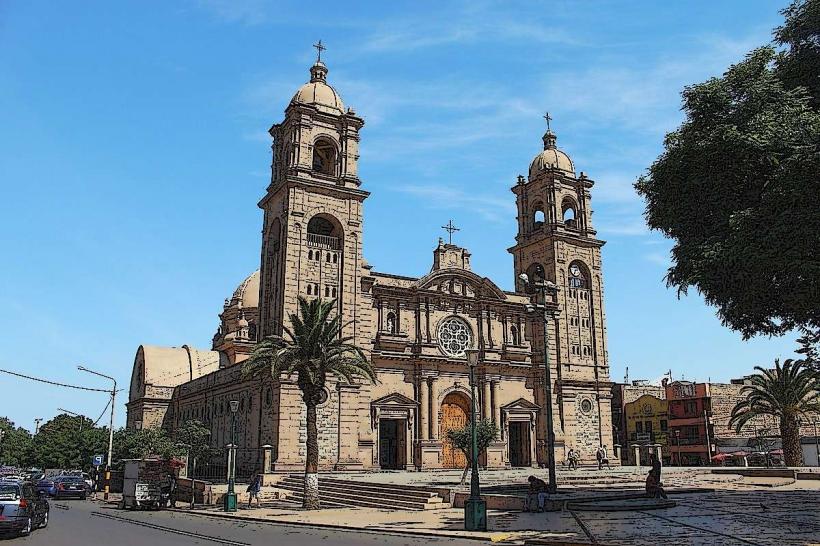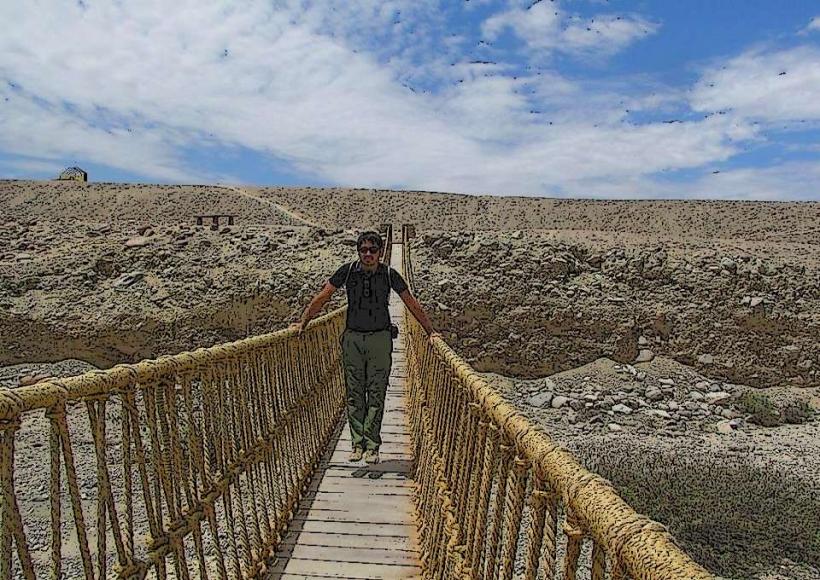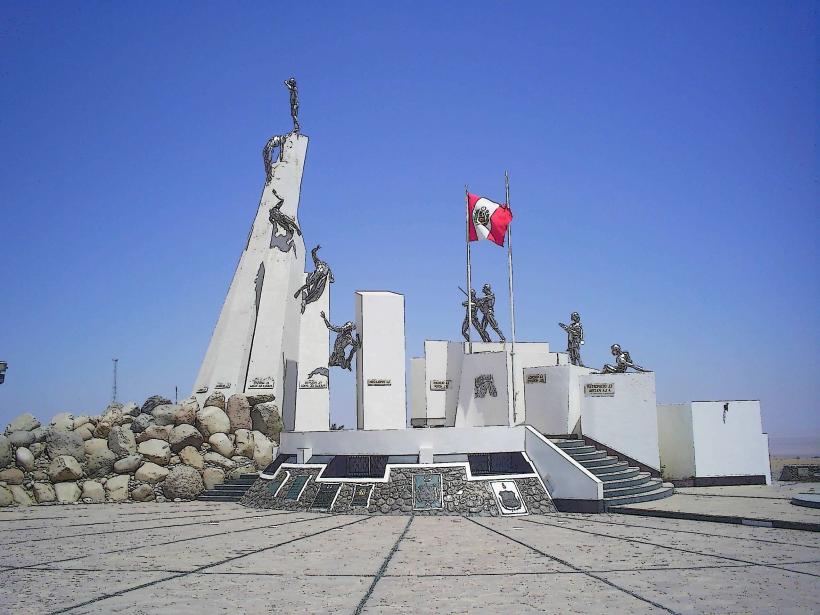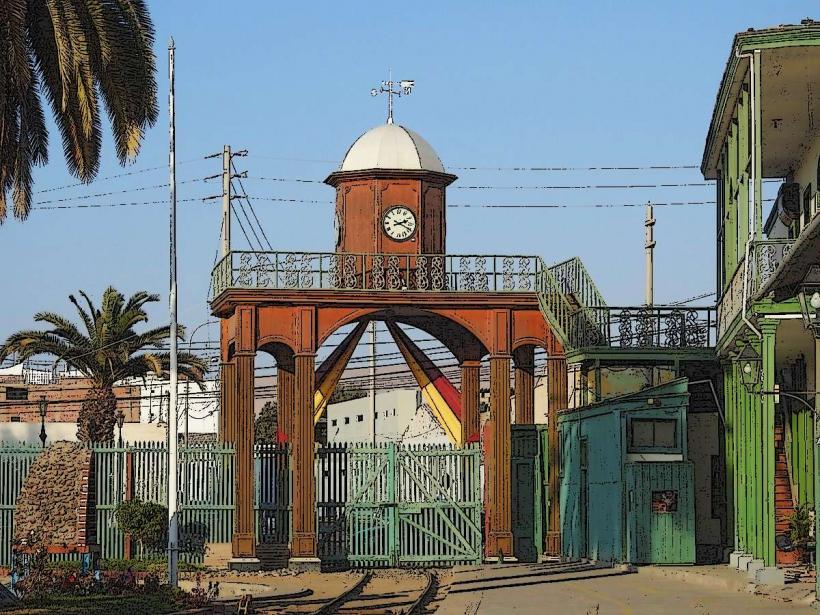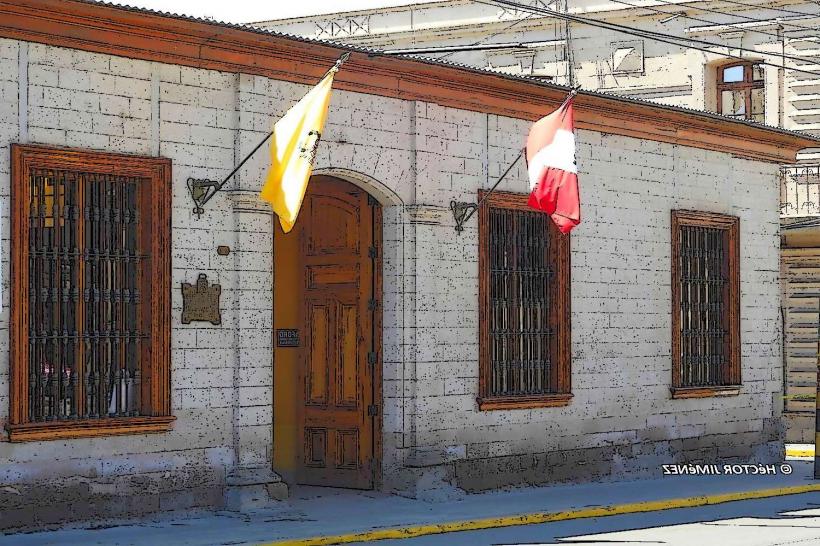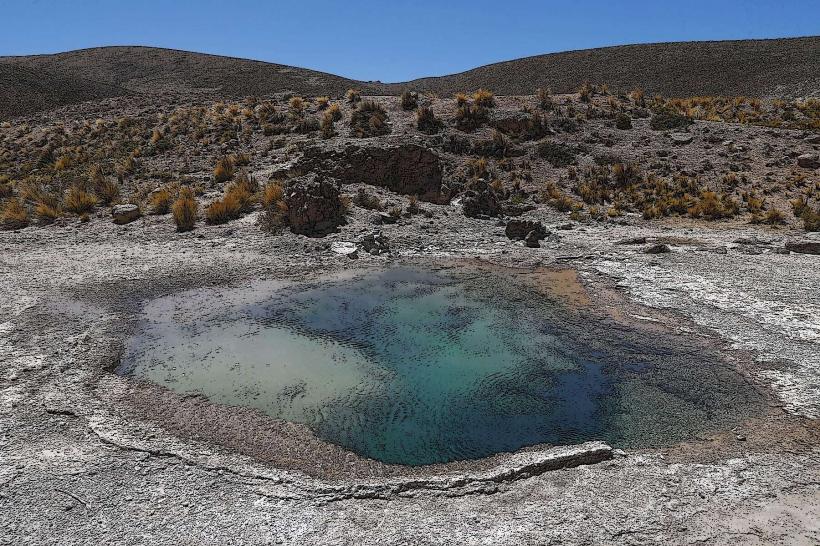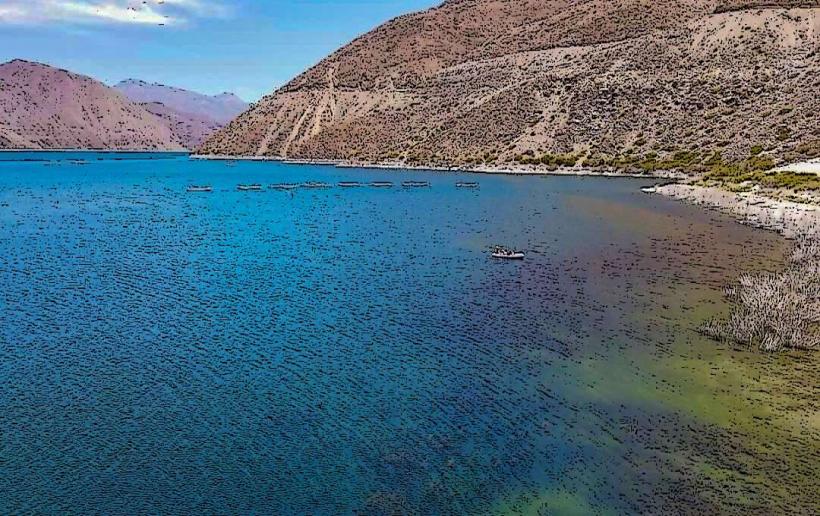Information
City: TacnaCountry: Peru
Continent: South America
Tacna, Peru, South America
Tacna is a city located in the southernmost part of Peru, near the border with Chile. It serves as the capital of the Tacna Region and is known for its historical significance, cultural heritage, and role in Peruvian nationalism. Here’s a detailed overview of Tacna:
1. Geographic and Climatic Overview
- Location: Tacna is situated in the Atacama Desert, a region known for its arid climate. The city is about 35 kilometers (22 miles) from the Pacific Ocean and lies in the Andean foothills.
- Climate: Tacna experiences a desert climate (BWh), characterized by:
- Warm, dry weather year-round.
- Very little rainfall, typically less than 25 mm (1 inch) annually.
- Average temperatures range from 15°C to 25°C (59°F to 77°F).
2. History
- Pre-Columbian Era: The Tacna region was originally inhabited by indigenous Aymara and Quechua peoples, who developed agriculture and trade.
- Colonial Period: During Spanish colonization, Tacna became an important stop on trade routes between Lima, Potosí (Bolivia), and other parts of the viceroyalty.
- War of the Pacific (1879–1883): Tacna was occupied by Chile as a result of the war between Peru, Bolivia, and Chile. It remained under Chilean administration for over 50 years.
- Return to Peru (1929): Tacna officially returned to Peruvian sovereignty following the Treaty of Lima, signed on August 28, 1929. This date is celebrated annually as Tacna's Reincorporation Day.
3. Economy
Tacna has a diverse economy based on:
- Agriculture: Known for its olives, grapes, and other crops due to the use of irrigation.
- Commerce: Tacna is a popular destination for Chileans who visit for shopping due to tax benefits and free trade zones.
- Tourism: Visitors are drawn to its historical landmarks, hot springs, and proximity to natural attractions.
- Mining: The Tacna region has significant copper and other mineral deposits.
4. Landmarks and Attractions
Historical Sites
- Cathedral of Tacna: Built in a neoclassical style by French architects, it is one of the city's most iconic buildings.
- Alto de la Alianza Monument: A memorial dedicated to Peruvian soldiers who fought in the Battle of Alto de la Alianza during the War of the Pacific.
- Railway Museum: Housed in the old train station, this museum highlights Tacna’s historic railway connecting it to Arica, Chile.
Cultural Attractions
- Casa Basadre: Birthplace of Jorge Basadre, a prominent Peruvian historian.
- Petroglyphs of Miculla: Ancient rock carvings located about 22 km from Tacna, showcasing the region’s pre-Columbian art.
Natural Attractions
- Aguas Termales de Calientes (Hot Springs): Popular for relaxation and therapeutic purposes.
- Laguna Aricota: A serene lake surrounded by mountains, ideal for outdoor activities.
5. Festivals and Traditions
- Fiesta de la Vendimia: A harvest festival celebrating Tacna's wine and pisco production.
- Semana Tacneña: A week-long celebration leading up to August 28, with parades, cultural events, and patriotic ceremonies.
- Carnaval Tacneño: A lively carnival with traditional dances, music, and colorful costumes.
6. Transportation
- By Air: The Coronel FAP Carlos Ciriani Santa Rosa Airport connects Tacna to Lima and other major Peruvian cities.
- By Land: Tacna is well-connected via the Pan-American Highway, and buses frequently run to Chile and other parts of Peru.
- Railway: The Tacna-Arica Railway offers a historic connection to the Chilean port city of Arica.
7. Cuisine
Tacna's gastronomy is a fusion of Peruvian and Aymara traditions. Popular dishes include:
- Picante a la Tacneña: A spicy meat stew served with potatoes.
- Choclo con Queso: Corn with fresh cheese.
- Adobo Tacneño: A pork stew marinated in spices.
- Pisco and Wine: Tacna is part of Peru’s pisco-producing region and offers a variety of wines.
8. Modern Significance
Tacna is a symbol of Peruvian nationalism and resilience, often referred to as the “Heroic City” (La Ciudad Heroica). Its historical struggle to return to Peru is a point of pride for its residents, and the city continues to play an essential role in fostering cultural identity and regional trade.

